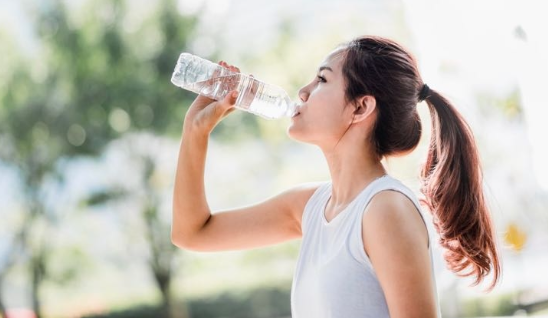
Hydration is a fundamental aspect of maintaining good health, and its importance cannot be overstated. The human body relies on adequate water intake to function correctly and efficiently. Here are several reasons why hydration is essential for overall health:
1. Regulation of Body Temperature:
Proper hydration is critical for the body’s ability to regulate temperature. Water helps dissipate heat by enabling sweat production and heat loss through the skin. Inadequate hydration can lead to heat-related illnesses and even heatstroke.
2. Optimal Organ Function:
Water is a major component of all bodily fluids, including blood, lymph, digestive juices, and urine. Adequate hydration ensures that these fluids maintain their proper consistency and volume, facilitating the optimal function of organs and systems.
3. Digestion and Nutrient Absorption:
Hydration is crucial for digestive processes. Water aids in the breakdown of food and the absorption of nutrients in the intestines. It also helps prevent constipation by softening stool.
4. Circulation and Oxygen Delivery:
Blood is composed mostly of water, and proper hydration is essential for maintaining blood volume and circulation. This allows for the efficient delivery of oxygen and nutrients to cells and the removal of waste products.
5. Joint Lubrication:
Joints, such as the knees and hips, contain synovial fluid, which acts as a lubricant. Staying hydrated helps maintain the viscosity of this fluid, allowing for smooth joint movement and reducing the risk of joint pain and injury.
6. Detoxification:
Adequate water intake supports the body’s natural detoxification processes. The kidneys rely on water to filter waste and toxins from the blood and excrete them as urine.
7. Cognitive Function:
Dehydration can impair cognitive function, leading to decreased alertness, difficulty concentrating, and reduced memory and mood. Staying hydrated can help maintain mental clarity and focus.
8. Skin Health:
Proper hydration is vital for skin health. Dehydrated skin is more prone to dryness, dullness, and wrinkles. Drinking enough water can help maintain skin elasticity and a healthy, glowing complexion.
9. Weight Management:
Staying hydrated can support weight management efforts. Thirst is sometimes mistaken for hunger, leading to unnecessary calorie intake. Drinking water before meals can help control appetite and reduce calorie consumption.
10. Physical Performance:
Athletes and individuals engaging in physical activity rely on hydration to maintain endurance and performance. Dehydration can lead to muscle cramps, decreased strength, and a higher risk of heat-related illnesses.
11. Heart Health:
Chronic dehydration can strain the heart by reducing blood volume, potentially leading to increased heart rate and higher blood pressure. Proper hydration supports cardiovascular health.
12. Immune System Support:
Hydration helps the body transport immune cells and antibodies throughout the body. This enhances the immune system's ability to combat infections and illnesses.
13. Kidney Health:
Adequate hydration is essential for kidney function. It reduces the risk of kidney stones by preventing the accumulation of minerals and waste products that can form into stones.
14. Mood and Emotional Well-Being:
Dehydration can affect mood and emotional well-being. It may lead to irritability, anxiety, and feelings of unease. Proper hydration can help maintain emotional stability.
15. Prevention of Heat-Related Illnesses:
In hot weather or during vigorous physical activity, staying hydrated is crucial for preventing heat-related illnesses like heat exhaustion and heatstroke.
To maintain optimal health, it’s essential to prioritize hydration by drinking an adequate amount of water throughout the day. The specific water needs can vary based on factors such as age, climate, physical activity, and individual health conditions. A general guideline is to aim for about 8-10 cups (64-80 ounces) of water per day. However, listening to your body’s signals of thirst and consuming enough water to keep your urine pale yellow is a practical approach to staying properly hydrated. Always consult with a healthcare professional for personalized recommendations, especially if you have specific health concerns.
Leave a Reply